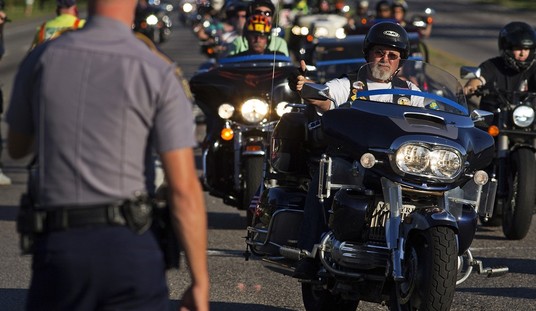This is the most egregious assault on religious liberty in quite a while. The Iowa Civil Rights Commission has issued an interpretation of the law that would bar churches from preaching a biblical interpretation of sexuality and gender identity.
In the church.
During services.
From the pulpit.
Fort Des Moines Church of Christ filed a federal lawsuit against the commission on Monday, arguing that the agency’s interpretation of the Iowa Civil Rights Act violates the First Amendment.
Christiana Holcomb, legal counsel for the Alliance Defending Freedom, which represents the church, said it is difficult to “imagine a more obvious unconstitutional invasion of the state into the internal affairs of the church” than what the Civil Rights Commission is proposing.
“Churches should be free to teach their religious beliefs and operate their houses of worship according to their faith without being threatened by the government,” Ms. Holcomb said in a statement. “That is a foundational First Amendment principle.”
The lawsuit came in response to an explanatory brochure titled “Sexual Orientation and Gender Identity — A Public Accommodations Provider’s Guide to Iowa Law,” released by the Civil Rights Commission. It says churches are public accommodations and therefore generally subject to the Iowa Civil Rights Act.
Under a section header titled “Does this law apply to churches?” the brochure says: “Sometimes. Iowa law provides that these protections do not apply to religious institutions with respect to any religion-based qualifications when such qualifications are related to a bona fide religious purpose.”
“Where qualifications are not related to a bona fide religious purpose, churches are still subject to the law’s provisions,” the brochure continues, adding that church activities such as “a child care facility operated at a church or a church service open to the public” are not examples of “bona fide religious purpose[s].”
A spokesperson for the commission did not respond to questions about who decides what a “bona fide religious purpose” is and what church activities — if not a “church service open to the public” — would qualify as “bona fide religious purpose[s].”
The brochure also defines discrimination as, among other things, “publicizing that the patronage of persons of any particular sexual orientation or gender identity is unwelcome, objectionable, not acceptable, or not solicited.”
The lawsuit says the Civil Rights Commission’s interpretation could force churches to permit access to sex-segregated facilities on the basis of gender identity. Refusing to call a transgender person by the pronoun corresponding with their gender identity could constitute illicit “harassment.”
A church service open to the public does not have a “bona fide religious purpose”? Attempting to regulate what a preacher can preach from the pulpit? How is any of this not a clear violation of the First Amendment’s guarantee of religious freedom?
This statement from an LGBT advocate should chill your bones:
Donna Red Wing, executive director of pro-LGBT rights One Iowa, said the lawsuit has no merit.
“Do we understand what is happening? They are suing the Iowa Civil Rights Commission for doing its job,” Ms. Red Wing said in a statement.
“As a church, they can believe whatever they want,” she continued. “In their bona fide religious activities, they are exempt. They cannot, however, break the law when providing public accommodation.”
With that kind of reasoning, I can easily envision a liberal Supreme Court upholding this interpretation. Civil rights law will trump the First Amendment every time, endangering not only religious freedom, but freedom of speech, freedom of assembly, and freedom of the press.
Hopefully, a federal judge will rule in favor of the churches. To us, it would seem to be a slam dunk legal case. But judges looking to make a name for themselves or looking for an opportunity to make new law, could destroy First Amendment protections in the name of equal rights for LGBT people.










Join the conversation as a VIP Member